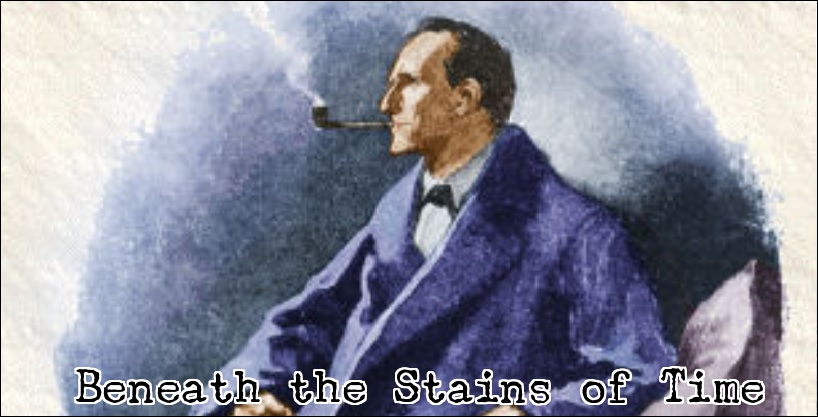"We have found that squirting water into a real clown's mouth until he drowns is more fun, and of benefit to society, but that's another story."- Todd Robbins (The Modern Con Man: How to Get Something for Nothing, 2008)
Stuart
Palmer was a Golden Age luminary and arguably one of the brightest
adherents of the American wing of the Intuitionist School, which included such
mystery writers as S.S.
van Dine, Ellery
Queen, Kelley
Roos and Rex
Stout.
The Penguin
Pool Murder (1931) introduced a beloved character
among connoisseurs of murder, Miss Hildegarde Withers, who's a
schoolteacher-turned-detective and assisted the police in piecing together The
Puzzle of the Pepper Tree (1934) and The Puzzle of the Blue Banderilla
(1937) – among other noteworthy endeavors in crime-detection by "that
meddlesome old battleaxe." However, for this review, I will be looking at
the first book from a short-lived series Palmer wrote in the 1950-and 60s.
 Howie Rook is
Palmer's second-string character and headlined only two novels, published more
than a decade apart, of which Unhappy Hooligan (1956) was the first. The
story opens when a large tomcat, named Satanas, enters the apartment of John
MacFarley through the only open window, which is left slightly ajar and
accessible by a narrow ledge only a cat or human fly can tip-toe on. MacFarley
is curiously dressed in black-tie and dinner jacket, in combination with a face
full of clown paint and a bullet hole in the chest.
Howie Rook is
Palmer's second-string character and headlined only two novels, published more
than a decade apart, of which Unhappy Hooligan (1956) was the first. The
story opens when a large tomcat, named Satanas, enters the apartment of John
MacFarley through the only open window, which is left slightly ajar and
accessible by a narrow ledge only a cat or human fly can tip-toe on. MacFarley
is curiously dressed in black-tie and dinner jacket, in combination with a face
full of clown paint and a bullet hole in the chest.
"Locked
room mysteries are usually for fiction and the pen of John Dickson Carr," Rook observes, but he could show Police Chief Parkman clippings from his news
papers of genuine examples of impossible crimes escaping from the printed
pages. Unfortunately, the reference to the "Pincus affair in New York City's
Bronx," in which an inoffensive tailor "had died in a locked and bolted
room from having a handkerchief jammed down his throat," appears to be
fictional. Last year, I posted several, real-life examples of actual locked
room mysteries: Part I,
II,
III,
IV
and V.
Anyway, back to the review.
MacFarley was
a circus enthusiast who had spend the last days of his life as an honorary
clown, traveling around with the Big Top, but didn't make many friends among
the regular performers when he began to fool around in earnest - which may have
made him an enemy that left traces of elephant dung and sawdust in the
apartment. Rook has to go undercover at the circus as a retired business man
and don the grease paint as he pokes around the motley crew of performers. Palmer
really did an excellent job at drawing an array of unusual, but real enough,
characters from the cast of vaudeville personalities and depicting their life
as traveling artists.
This shoves the
locked room aspect of the story more to the background, but the circus material
is really the best part of the book. It was very reminiscent of Case with
Four Clown (1939) by Leo Bruce,
in which Sgt. Beef has practically joined the circus. Rook takes his role as a
professional rather than a dilettante, but it's quite enjoyable to have your
detective lumbering around as a mute clown, having a close shave with a
throwing-knife and duty-bound to distract the audience after a thrilling moment
in the big top of the tent – while figuring out a way a murderer could've
entered the locked and bolted apartment. The job is made all the more difficult
when the widow and daughter keep throwing suspicion on each other.
Unhappy
Hooligan is a lively written, reasonably plotted
mystery novel, enhanced by a well-drawn circus background and characters, but
the overall plot did not measure up to the best from the Miss Withers series
(e.g. Nipped in the Bud, 1951). The explanation for the locked room was
carnie, but to be expected, and I was glad to see that Poe's "monkey wrench"
was used as an obvious red herring. I really should just stop whining about
these disappointing locked room mysteries and just write one myself... you know...
one of these days...

I'm a sicker for circus settings so I'm certainly interested in this one.
ReplyDeleteYou won't be disappointed about the circus material in this book, especially if you like them in a mystery setting.
Delete